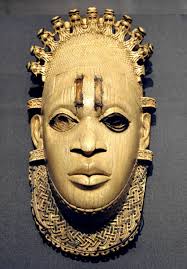“The Glorious Legacy of the Benin Empire: Exploring the Riches, Artistry, and Governance of an African Civilization”

The Edo Empire, also known as the Benin Empire, is a significant part of African history with advanced governance, cultural heritage, and renowned art.
The Benin Empire’s roots can be traced back to the ancient Edo people who settled in what is now Southern Nigeria. The empire’s formation began in the 13th century under the leadership of the Edo monarchs. Notable rulers such as Ewuare the Great played crucial roles in expanding the empire’s territories through military prowess and strategic alliances.
The Benin Empire was widely known for its highly developed system of governance, which was headed by a powerful monarchy led by the Oba (king). The Oba’s authority was maintained by a council of chiefs and elders who played crucial roles in the decision-making process and administration. The empire’s hierarchical structure and well-defined roles were instrumental in contributing to its stability and cohesion.
The Benin Empire achieved great success by developing a strong economy based on agriculture, trade, and craftsmanship. The empire traded in valuable commodities such as ivory, palm oil, cloth, and slaves, and established extensive trade networks with neighboring regions and European traders. The skilled artisans of Benin produced exquisite bronze and brass sculptures, ivory carvings, and intricately woven textiles that were highly sought after.
The art heritage of the Benin Empire is renowned, especially the beautiful bronze and brass artworks named the Benin Bronzes. These sculptures portrayed scenes of royal life, historical events, and spiritual beliefs, exhibiting the empire’s artistic excellence and cultural refinement. Benin’s art legacy still serves as an inspiration for artists, scholars, and collectors all around the globe.

Although the Benin Empire was prosperous and had many cultural achievements, it faced several challenges, including external pressures from European colonial powers. The British Punitive Expedition of 1897 was one of the most significant challenges, which resulted in the looting and destruction of the royal palace and treasures of Benin. This event marked a significant blow to the empire’s sovereignty and eventual decline.
The Benin Empire’s legacy lives on through its noteworthy contributions to culture, governance models, and artistic heritage. The efforts to conserve and display Benin’s historical artifacts, including the Benin Bronzes, emphasize the empire’s enduring influence on African art, history, and identity. The empire’s descendants, including the present-day Oba of Benin, still uphold traditional customs and values, thereby keeping the spirit of Benin alive.
The Benin Empire is a remarkable example of Africa’s diverse cultural heritage, innovative governance systems, and artistic accomplishments. Its story is a source of inspiration and pride, reminding us of the tenacity, creativity, and lasting impact of African civilizations in shaping the world’s cultural landscape.

